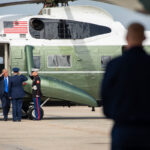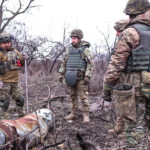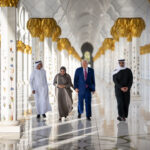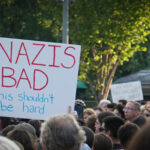Since early 2020, the world has been obsessed with non-traditional security threats, especially those related to public health due to the coronavirus pandemic. Yet, for many countries including South Korea, traditional security threats, such as the shadow of a nuclear war, still looms. If and when the pandemic subsides, these problems will be exposed in raw form as national economies contend for recovery and have less room for making concessions.
Despite extraordinary efforts by the Moon administration to reengage with North Korea since 2018, no deal has been met on denuclearization while its nuclear and missile capabilities have continued to increase, which indicates that the Trump administration’s North Korea policy has largely failed. In January 2021, North Korea continued to emphasize the advancement of its nuclear capabilities during its Eighth Party Congress, adding that it had “ultramodern tactical nuclear weapons” ready for deployment. In recent months, China’s nuclear ambitions have become more obvious. This is worrisome as heightened US–China competition stretches the “peaceful” security fabric in Northeast Asia. South Korea, therefore, is reevaluating its security environment and concerns, which will have implications for its bilateral relationship with the United States.
WHAT SOUTH KOREANS THINK
Under current circumstances, it is not surprising that South Koreans feel that more protection is needed. Recent polling trends suggest that there is a growing appetite for redeploying tactical nuclear weapons on the peninsula among the general population. Some claim it is time South Korea started to build its own nuclear capabilities like nuclear-powered submarines or to introduce a nuclear sharing agreement like NATO in Northeast Asia. This sentiment is not without reason as US commitment to extended deterrence, the alliance and liberal world order per se were drastically weakened during the Trump administration. In 2017, President Donald Trump threatened to launch a preemptive strike against North Korea, which could have led to fatal nuclear retaliation. He also suggested that both South Korea and Japan should acquire their own nuclear arsenal. His rationale was that treaty alliances are too costly and provide little benefit to the American people, so the United States would be better off if allies pursued their own nuclear capabilities. To witness a US president utter these words was shocking to all South Koreans, making conservatives more realistic and progressives more skeptical about US security commitments.
Meanwhile, how South Koreans perceive the need to acquire nuclear weapons for the country’s survival is far from fixed. Polls show that when additional information is offered about what tactical nuclear weapons are, what the physical and political costs and risks of redeploying them on our soil is, people tend to become less supportive of obtaining nuclear capabilities. In fact, the majority of South Koreans welcomed President Joe Biden’s coming into office this year and polls show they view the ROK–US alliance as necessary and express a high level of trust. According to a 2020 Pew Research Center poll, South Korea and Japan were the only two countries that saw the United States as the leading economic power, while the rest, including the EU and Australia (who later decided to pull out of the Belt and Road Initiative) pointed to China. The world, however, is not naively optimistic. A 2021 Pew Research Center poll shows that respondents from 16 countries, including South Korea, still think “America Firstism” is to stay and that bilateral relations with the United States will maintain the status quo rather than improve significantly.
PERCEPTIONS OF THE SOUTH KOREAN ELITE
If the average South Korean’s nuclear perceptions are largely based on fear and the want to feel better protected, elite perceptions incorporate the responsibility to provide a viable solution. While the Biden administration has completed its North Korea policy review, there is still more posturing than actual policy engagement. North Korea has yet to respond to US calls for dialogue, only recently repairing direct communication lines with South Korea. Preliminary ROK–US joint military exercises resumed this week on a smaller scale, which draws much concern about actual deterrence efficacy as well as the straining of alliance relations. Against this background, the United States is showing signs of fatigue, such that there is a growing chance they may well settle for immediately freezing North Korea’s nuclear weapons program rather than aiming for denuclearization in the long haul. Sensing this possibility, South Korean conservative elites are becoming more vocal about redeploying tactical nuclear weapons and acquiring independent nuclear capabilities. From their viewpoint, it is unacceptable to become hostage to North Korea’s nuclear weapons and thus South Korea must reign in proactively.
The Pacific Ocean is simply too vast and South Korea’s neighbors are becoming too capable to take the US nuclear umbrella for granted.
South Korea has resolved to pursue a three-pronged strategy of deterrence by investing heavily in its conventional military capabilities known as the Kill Chain, the Korea Massive Punishment and Retaliation (KMPR) and Korea Air and Missile Defense (KAMD). Since 2012, the Kill Chain has aimed to detect and preempt North Korean ballistic missiles with or without nuclear warheads before they are launched using enhanced intelligence and surveillance assets. KMPR is literally geared toward retaliation. Originally in 2016, the focus was to prepare to retaliate directly against North Korean attacks, but it was revised in 2018 to incorporate retaliation against omnidirectional security threats. Nevertheless, such efforts are insufficient to offset the anxiety of those who argue that conventional and nuclear weapons are inherently asymmetric.
THE CREDIBILITY DEFICIT IN THE ROK–US RELATIONSHIP
The inconvenient truth is that US extended deterrence is a strategic concept that needs to be reinforced repeatedly due to the embedded credibility problem within. The Pacific Ocean is simply too vast and South Korea’s neighbors are becoming too capable to take the US nuclear umbrella for granted. Moreover, acute partisanship and disarray of democratic governance in the US often ties the hands of its leadership. The Biden administration has inherited the burden of building back the trust of allies and has played its part in finalizing cost sharing agreements and holding summits with its Asian allies in first order. However, more could be done to reduce the credibility deficit than merely repeat declarations of US commitment to extended deterrence in the face of a real, growing North Korean nuclear arsenal. Drafting a detailed extended deterrence plan or the beginnings of a doctrine would signal that it is indeed a fully working concept. Reviving high level exchanges or activating working groups with South Korea on nuclear strategy implementation would help restore confidence. Holding open and closed discussions of “possible redeployment” of US tactical nuclear weapons with South Korean experts could begin to highlight what is feasible and not, along with concrete ways to move forward.
What is increasingly unsettling is that the structural changes in international politics are pointing to substantial change in US global leadership and alliance relations. During the first half of 2021, arguments advocating restraint and retrenchment became prominent in the US security narrative. Some called for the establishment of “new spheres of influence” while others envisioned a “new concert of powers,” claiming that the US will inevitably give up some of its responsibilities even if it retained its hegemon status. It is foreseeable that US foreign policy would be motivated by narrowly framed existential concerns, which will not be appreciated by its allies. While the Biden administration is poised to go quite far with its focus on values and diplomacy, the core of its national and defense strategy echoes much of what we saw during the Trump administration: An inward-looking America putting its interests first. As the needs of Kenosha are argued to be more important than any other foreign city, there is reason to be skeptical about the United States using its nuclear forces to defend South Korea against a North Korean attack.
LOOKING AHEAD
As we approach the March 2022 presidential elections in South Korea, candidates will capitalize on public sentiment and make strong demands for enhancing national security. Still early in the race, a dominant narrative on nuclear issues has yet to emerge. This makes it all the more important to build and maintain serious discussions on external deterrence before politics gets in the way of sound policy and coordination.
Bo Ram Kwon is an Associate Research Fellow at the Korea Institute for Defense Analyses (KIDA).




















